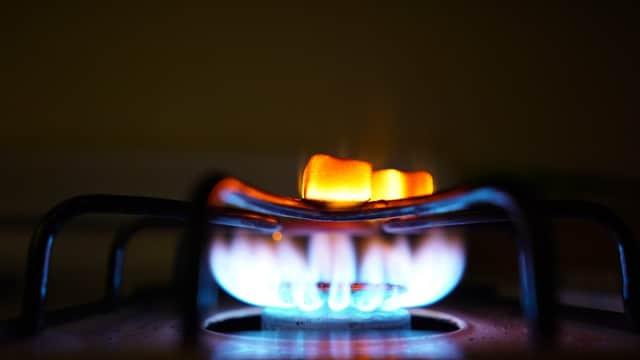Two thirds of adults don’t know what a gas leak smells like - here’s how to spot it’?


A survey of 2,000 adults who either rent or own a home also found just one in 20 are able to correctly identify the six main signs of a dangerous gas appliance.
One in ten identified mould and 12 per cent a build-up of dust as potential signs of a faulty appliance - despite neither of these being valid indicators.
Advertisement
Hide AdAdvertisement
Hide AdSigns Brits should be aware of include ‘lazy’ yellow flames instead of crisp blue ones, black marks or stains on or around appliances and condensation in the room.
Gas Safe Register has created a new ‘Ripple Effect’ public safety campaign urging householders nationwide to protect their friends and neighbours.
Jonathan Samuel, chief executive at the Gas Safe Register, said: “In the current climate, with so much to contend with, it’s easy to understand why people may overlook the importance of having gas boilers and household gas appliances serviced.
“However, this really shines a light on the knowledge gaps that still exist when it comes to the awareness of the signs and symptoms of unsafe gas appliances.
Advertisement
Hide AdAdvertisement
Hide Ad“Now, more than ever, it’s important that homeowners up and down the country are not unwillingly playing host to potentially life-threatening risks that could have a ripple effect within their neighbourhood, through faulty gas appliances.”
Gas engineers across the country – those on the frontline when gas goes wrong – have also lent their voices to the campaign to help raise awareness.
The Biggest Risks
When asked about the biggest risks they identify when called out to unsafe gas environments, almost half pointed to appliance services being overdue.
Over a quarter warned of illegal gas work carried out by someone who is not registered with the Gas Safe Register and one in five blamed botched DIY - including moving or tampering with gas appliances and building conservatories or extensions.
Advertisement
Hide AdAdvertisement
Hide AdPaul Hull, a Gas Safe registered engineer from Surrey, added: “The Ripple Effect is very real when it comes to the wider impact of unsafe and faulty gas appliances within our own homes and our neighbourhoods.
“Left unserviced and unchecked year-on-year, appliances such as cookers, fires and boilers, can pose life-threatening risks, which can lead to – in some extreme instances - fires and explosions.
“What not many people do not realise, is that such incidences can also have a devasting ripple effect within their communities - from the potential of major structural damages to other homes in the area, to the disconnection of gas supplies for a number of weeks, which can be particularly distressing during the winter months.
“This is why it’s vital that people get clued up on how to stay gas safe within their homes– to help protect both themselves, their neighbours and loved ones.”
The Ripple Effect
Advertisement
Hide AdAdvertisement
Hide AdThe Ripple Effect campaign also includes an animation, told through the eyes of the close-knit community of fictional Gale Close – including Fabio the cat and baby Lily Morgan - reconstructing the tragedy that can result from gas knowledge gaps.
Inspection data from Gas Safe Register also shows one in every five UK homes inspected by Gas Safe Register housed unsafe gas.
This is equivalent to 5.6million homes nationally being at risk of a ripple effect incident because they contain one or more unsafe appliances like cookers, boilers or gas fires.
For more information, visit www.gassaferegister.co.uk/therippleeffect.
GAS SAFE REGISTER’S SIX STEPS TO HELP NEIGHBOURHOODS STAY BETTER GAS SAFE THAN SORRY:
- Know the six signs of carbon monoxide poisoning – headaches, dizziness, breathlessness, nausea, collapse and loss of consciousness.
- Check gas appliances for warning signs that they are not working properly e.g. lazy yellow flames instead of crisp blue ones, black marks or stains on or around the appliance and condensation in the room.
- Fit an audible carbon monoxide alarm. This will alert you if there is carbon monoxide in your home.
- Have all your gas appliances regularly serviced and safety checked every year. If you rent your home, ask for a copy of the landlord’s current Gas Safety Record.
- Only use a Gas Safe registered engineer to fit, fix and service your appliances. You can find and check an engineer at GasSafeRegister.co.uk or call 0800 408 5500.
- Check both sides of your engineer’s Gas Safe Register ID card. Make sure they are qualified for the work you need doing. You can find this information on the back of the card.